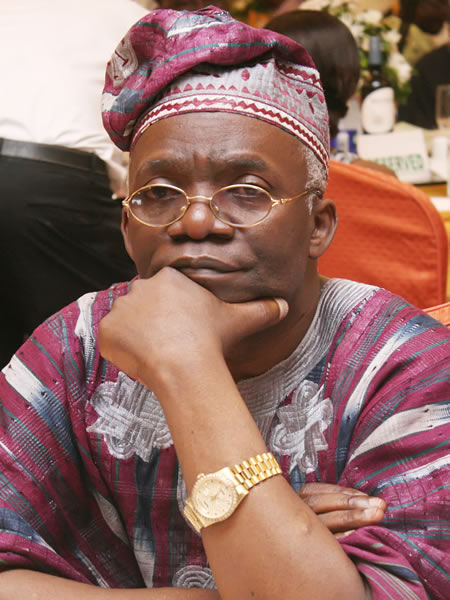HUMAN rights lawyer Femi Falana (SAN) has called on African governments to uphold and ensure full respect for all human rights—civil, political, economic, social and cultural rights within their domestic legal systems.
According to Falana, “It is time for African governments to end the artificial dichotomy between political and civil rights, and socio-economic rights as well as right to sustainable development, to peace and a healthy environment.”
Falana said this in a keynote address presented today at the Public Forum on Law and Freedom of Expression in West Africa organised by the Media Foundation for West Africa and held at the Mensvic Grand Hotel, Accra, Ghana.
The paper, titled ‘Civic Expression, Media Freedom, Law and the Fight Against Impunity, read in part: “To that extent, in defending freedom of expression and press freedom in Africa, it must be realised that the majority of the African people are unable to express themselves due to lack of education.
“To enable all citizens to enjoy the human right to freedom of expression, we should join the campaign for demand for the actualization of the right to education guaranteed by Article 17 of the African Charter on Human and Peoples Rights.
“Other socio-economic rights guaranteed by the African Charter include the right to participate in the government of one’s country either directly or indirectly through accredited representatives, the right to work under equitable and satisfactory conditions and equal pay for equal work.
“Others are the right to health, the right of women and children to protection, the right to a generally satisfactory environment, the right to development, the right to popular control of the natural resources of each country and the right to self-determination.
“In several cases, the aforesaid human and peoples’ rights have been upheld by the African Commission on Human and Peoples’ Rights; the Community Court of Justice and the African Court on Human and Peoples Rights.
“A few domestic courts have equally recognised the socio-economic rights of the people. Based on the success recorded so far, I am compelled to call on the media to educate and enlighten the people about their socio-economic rights and prevail on governments to carry out the duty to protect the socio-economic rights of the people of Africa.
“We must appreciate that the struggle that ended violent colonial and military regimes in Africa was not won by NGOs but by an alliance of workers, women, youths, and the progressive extraction of journalists, lawyers and other professionals.
“Such an alliance must be forged in each country for the purpose of defeating the repressive governments that are involved in the recolonisation of the African people with the support of imperialism.
“It would be recalled that the struggle that ended the violent colonial and military regimes in Africa was not won by NGOs but by an alliance of workers, women, youths, and the progressive extraction of journalists, lawyers and other professionals.
“It is high time such an alliance was forged in each country for the purpose of defeating the repressive governments that are involved in the recolonisation of the African people with the support of imperialism.
“Permit me to end the keynote address by making the following recommendations and suggestions: “The defence of human rights should no longer be limited to political and civil rights. The defence of socio-economic rights should be prioritised in the campaign for human rights enforcement.
“Governments must be made to respect the human right to freedom of expression and press freedom to enable journalists to discharge the duty of promoting public accountability and transparency.
“The provisions of the Cybercrime Act which restrict press freedom and other political and civil rights of the people should be challenged in domestic courts and regional courts.
“The media should engage in a rigorous campaign to prevent parliaments from enacting anti-media laws. The media and citizens should make use of the internet and social media in a very responsible manner.”
“To check abuse of the use of social media, a law should provide for the appointments of an independent body in every country to speedily attend to online defamation and sanction erring journalists and other persons.
“The constitutional validity of the criminal code relating to sedition and criminal libel should be tested in courts.
“Despite the decriminalization of media law that took place in Ghana in 2001, the government has continued the harassment of journalists and other citizens under the Criminal and Offences Act 1960, Act 29, and Section 76 of the Electronic Communications Act (Act 775).
“In Nigeria, the police and other security agencies have continued to harass journalists under the repealed provisions of the Cybercrime Act of 2015.
“Instead of gaining political and economic independence from the former colonial regimes, African states entered into a stage of neocolonialism.
“Up till now, the African states remain under the firm grip and control of imperialism. No doubt, the human rights debate in Africa has concentrated on the legal and philosophical. But Professor Shijvi has rightly called on Africans to move the debate to the social and political planes.”
Eighteen-Eleven Media


